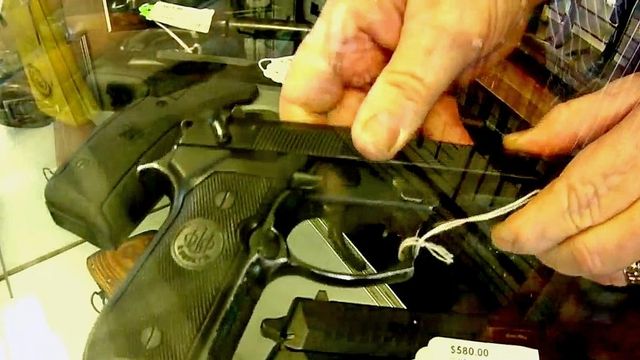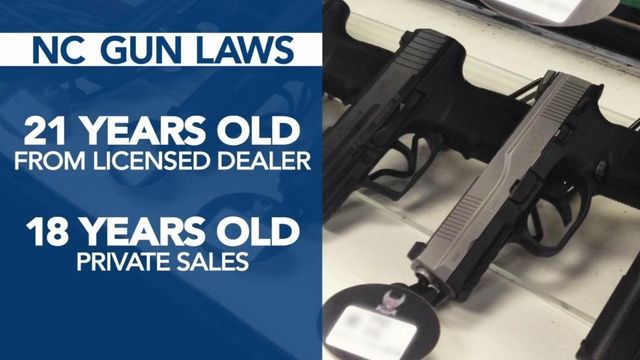Guns and mental health: A topic of debate following Florida school shooting
Do guns kill people or do people kill people? It is the debate that is dividing the nation. This week, Dana Loesch, a spokesperson for the National Rifle Association, spoke at a town hall meeting in Florida following last week's fatal shooting at Marjory Stoneman Douglas High School.
Posted — UpdatedThis week, Dana Loesch, a spokesperson for the National Rifle Association, spoke at a town hall meeting in Florida following last week's fatal shooting at Marjory Stoneman Douglas High School.
"I don't believe this insane monster should have ever been able to obtain a firearm. Ever," she said of the gunman who killed 17 people last Wednesday. "I do not think he should have gotten his hands on any type of weapon."
During the town hall meeting, Loesch and Florida's senators took questions from the crowd, including students who survived and parents of those who were killed or injured during the shooting.
Loesch made the NRA's stance very clear.
"This individual was nuts, and I, nor the millions of law-abiding people I represent as part of this organization that I'm here speaking for, none of us support people who are crazy," she said. "People who are a danger to themselves, who are a danger to others, getting their hands on a firearm."
The mental health aspect of gun ownership came to the national forefront back in 2007, following the Virginia Tech massacre. The shooter in that case, Seung-Hui Cho, shouldn't have been allowed to buy weapons because of a history of mental illness, yet he slipped through the cracks.
Six years after that shooting, WRAL Investigates exposed a lingering loophole in North Carolina's efforts to keep weapons out of the hands of the mentally ill. State law required clerks of court to report findings of insanity "as soon as practicable." Following our story, state lawmakers put a 48-hour deadline on that reporting.
"We're going to do strong background checks, we're going to work on getting the age up to 21 instead of 18," said President Donald Trump. "We're getting rid of the bump stocks, and we're going to focus very strongly on mental health."
While Trump vowed to tighten background checks, laws still vary from state to state.
Right now, 47 states and the District of Columbia have laws addressing the mentally ill's purchase or possession of guns. Most involve people who are involuntarily committed or found not guilty by reason of insanity.
However, 11 states take it a step further to include people voluntarily committed to mental health hospitals or those diagnosed with a mental illness.
In most cases, a person can re-quality for a gun permit if they can provide medical proof of recovery.
Broward County Sheriff Scott Israel said he thinks this is a step in the right direction.
"My heart goes out for them. I want to see people heal, of course. But when people have just undergone a psychiatric evaluation, and we're worried about their mental health, these people need to be away from guns until they're evaluated. Maybe years down the road," he said.
Related Topics
• Credits
Copyright 2024 by Capitol Broadcasting Company. All rights reserved. This material may not be published, broadcast, rewritten or redistributed.






